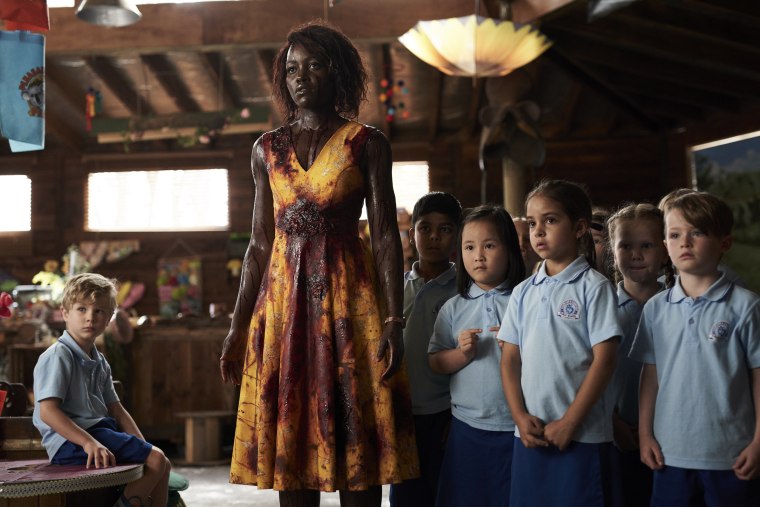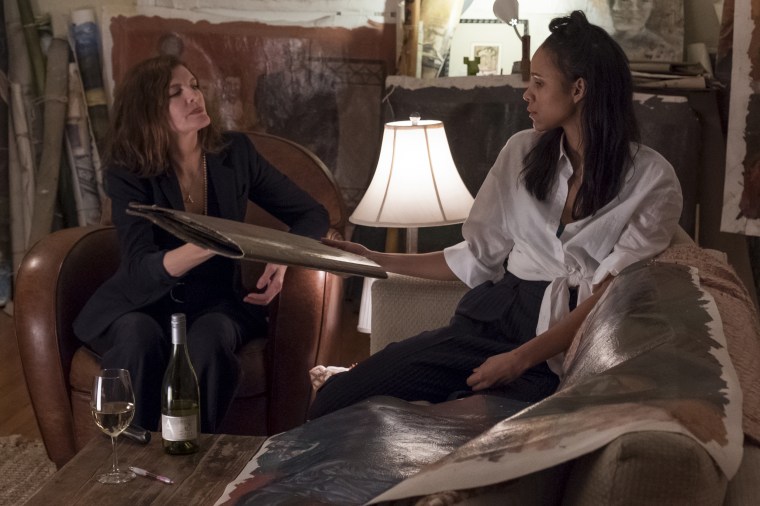Traditional preparation for a foray into the dark side of horror films often means getting ready for blood, gore, murder and the internal silent shrieks to keep from crying in fear. It is rare to pick up on lines of deep satire, to bellow over in laughter, or reach for tissues from the sheer heart of a horror film. But all of these describe the experience of watching "Little Monsters" and "Velvet Buzzsaw" — unexpected horror gems, each pushing the boundaries of the genre to new heights.
The two movies forge a new lane of standard horror, particularly in their depiction of strong black women, who are equally as flawed as the average damsel, but are also not the first in the movie to be killed. "Little Monsters" gives us a black female heroine, while "Velvet Buzzsaw" shows us the complexities of a black woman pushed to her limits because of her career, and how her reaction to the pressure of work, and its disadvantages, changes her life forever.
What sets both "Little Monsters" and "Velvet Buzzsaw" apart is their genre-breaking abilities, never quite playing into the typical tropes or standards. Both films create their own kind of creepy moments, while still weaving in heroism, forgiveness, sexual identity, warmth and pure comedy. They allow their characters to be multifaceted and to make very human and methodical mistakes, ones that aren’t typically just plain bad decisions. The main characters are allowed to learn from their mistakes.
Recently acquired by Hulu, "Little Monsters," written and directed by Abe Forsythe, follows an immature and lost former rock star, Dave (Alexander England) who has just broken up with his longtime girlfriend. Their relationship founders on his failure to grow up, take responsibility for himself and his actions, and his aversion to having children for fear of becoming like the father who abandoned him. He is forced to move in with his older sister, Tess (Kat Stewart) and her young son, Felix (Diesel La Torraca), aka Darth Vader. Dave’s path to growth and enlightenment doesn’t come easy; after all, it is a zombie outbreak film.

Ms. Caroline (Lupita Nyong’o) is the teacher of the year. She is brilliant, strong, sophisticated and her primary focus is the safety and education of her kids. When Dave is punished by Tess for his irresponsible behavior, he is forced to drop Felix off at school. As soon as Dave meets Ms. Caroline, he is smitten. So, when another parent unforeseeably has to back out of the school field trip to the zoo/wildlife reserve, he volunteers, thinking he has a morsel of a romantic shot with Ms. Caroline. Ms. Caroline, who is not easily impressed and in a bind, agrees. Once they arrive at the zoo, things go awry pretty quickly. The zoo happens to be next door to an Army facility that is creating and imprisoning zombies. When one zombie escapes, things get hairy. Looking for more sustenance, they go to the zoo for more humans and animals to feed off of.
Nyong’o proves that she can kill any role she takes, and this dive into horror only made me more excited about her sure-to-be terrifying performance in Jordan Peele's horror flick "Us," which premieres at SXSW this month.
"Velvet Buzzsaw," now streaming on Netflix, is directed by Dan Gilroy and uses satire with a twist. Set in the chic art world in Miami Beach, Florida, nothing is what it seems. It follows art critic Morf Vandewalt (Jake Gyllenhaal) as he attends an exhibition alongside his friend and sometimes romantic partner Josephina (Zawe Ashton), who works for the highly insufferable and demanding Rhodora Haze (Rene Russo).

As Morf and Josephina grow more intimate, he uncovers more about his own sexuality, and a supernatural curveball brought on by Josephina’s ambition surprises them all. When Josephina finds her neighbor, Vetril Dease, dead, she wanders into his apartment and uncovers not only his cat but a plethora of valuable art created by him. Naturally, she steals them and it is as if his spirit lives in each piece. As more unfolds about Dease’s wishes for the art as laid out in his will, it becomes too late for those involved.
These films don’t always take themselves seriously while playing into a lot of what the audience may be thinking anyway. They also take honest and transparent situations and add horror elements, forcing the characters to respond outside of their norm because of extenuating circumstances. Both films, harrowing in their own right, are also complex, never diluted, but fresh and boldly ambitious.